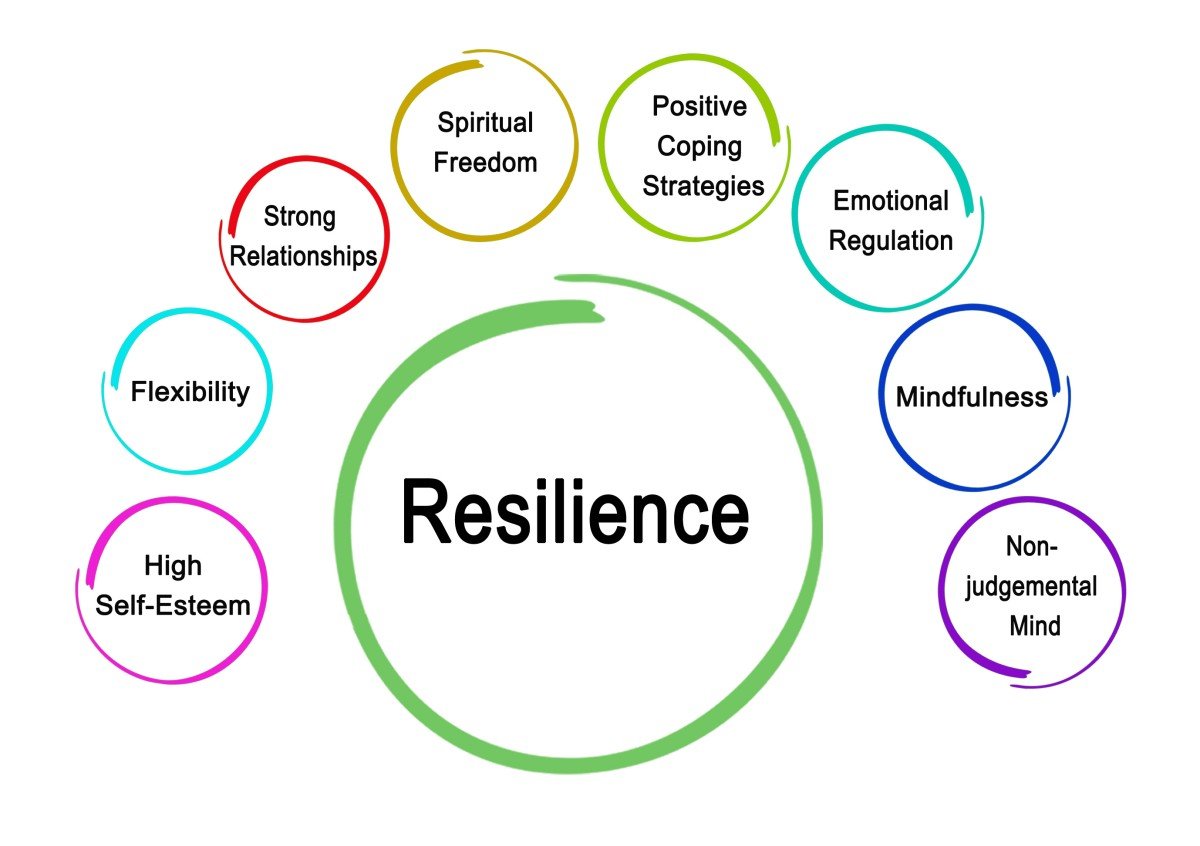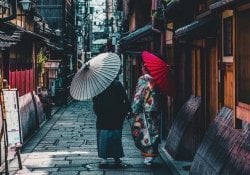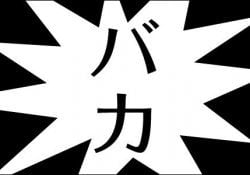Ever wondered how to say Resilience in Japanese? There are several Japanese words that express this quality, such as Gaman and Nintai, in this article we will study the meaning of these and other words and a little about the resilience of the Japanese.
We also recommend reading:
- Haiku – The Little Japanese Poems
- Japanese habits and customs
- Kanpai – What is the true meaning of kampai?
Índice de Conteúdo
What is Resilience?
Resilience is like a muscle, the more you use it, the stronger it gets! It's the ability to adapt and overcome difficult challenges, like a plant that keeps growing even after going through a storm.
Imagine an eraser, it can be stretched and twisted, but it always comes back to its original shape. Like rubber, resilient people are able to bounce back quickly from difficult situations and keep moving forward.
Resilience is an incredible skill that we all have, so we must cultivate it to become stronger and more flexible like rubber.

What does gaman mean?
"Gaman" (我慢) is a Japanese word meaning "self-restraint" or "self-restraint". It is an important concept in Japanese culture that refers to the act of enduring or tolerating difficulties or suffering with patience and dignity, without complaining or showing signs of weakness.
This can include enduring physical pain, but it can also refer to difficult social or emotional situations. Gaman is seen as a virtue in Japan, being considered important for maintaining social harmony and emotional stability.
The term has Buddhist origins and is usually translated as patience, but it also conveys the strong idea of resilience. Another term that stands out as an origin is Gamanzuyoi [我慢強い] which means to bear the unbearable with strength.
In general, Gaman is a valued trait in Japan and is encouraged from childhood. The act of moving forward, for the Japanese, is a sign of loyalty and a sense of duty.
We recommend reading: Bushido - 武士道 - The Samurai Way

What does Nintai mean?
"Nintai" (忍耐) is a Japanese word meaning "patience" or "tolerance". It is similar to the concept of "Gaman" and refers to the act of enduring or tolerating hardships and hardships without complaining or showing signs of weakness.
Nintai can refer to both physical patience and emotional or mental patience, being seen as a form of self-control and self-mastery. Nintai is considered important for maintaining social harmony and emotional stability and has been a prized virtue in Japan for many centuries.
Nintai also has its philosophical imprint and also composes other words that have ideograms that represent strength and heart, such as:
- 忍耐力 - Fortress; perseverance; stoicism; patience;
- 忍耐心 - Resistance; perseverance; patience;
- 忍耐強い - Persevering, very patient;

The article is still halfway through, but we recommend also reading:
Resilience in Japan
Resilience is a valued trait in Japanese culture and can be seen in many aspects of everyday life. The concept of “Gaman” (self-mastery or self-restraint) and “Nintai” (patience or tolerance) are examples of how resilience is valued in Japan.
The practice of Bushido , the samurai's code of ethics, also emphasizes discipline and self-control, which is seen as an important aspect of resilience.
Furthermore, Japan is frequently affected by natural disasters such as earthquakes, typhoons and floods, and the population develops a culture of preparedness and resilience to deal with these challenges.
Resilience is also valued in the Japanese workplace, where dedication and loyalty are highly valued. Working hard and persevering even in the face of challenges is considered a virtue.
Other ways to express Resilience in Japanese
See below for other Japanese expressions that convey the idea of resilience or have similarities with this quality and ability.
- "Tairyouku" (体力) - refers to endurance, stamina, energy, and physical strength.
- "Shinsō" (辛抱) - Japanese word meaning "patience" or "resignation".
- "Shouganai" (しょうがない) - means "inevitable" or "cannot be avoided". It is used to express acceptance of a difficult or unpleasant situation.
- "Shikata ga nai" (仕方がない) - means "there is nothing to do" or "there is no choice". It is similar to "shouganai" and is used to express acceptance of a difficult situation.
- "Ganbaru" (頑張る) - means "to try hard" or "to strive". It is used to express determination and perseverance in the face of challenges.
- "Kinniku" (筋肉) - means "muscle" or "strength". It is used to express physical strength, but it can also refer to strength of character or mental strength.
- "Fudō" (不動) - means "immovable" or "undisturbed". It is used to express calmness and emotional stability, even in difficult situations.







